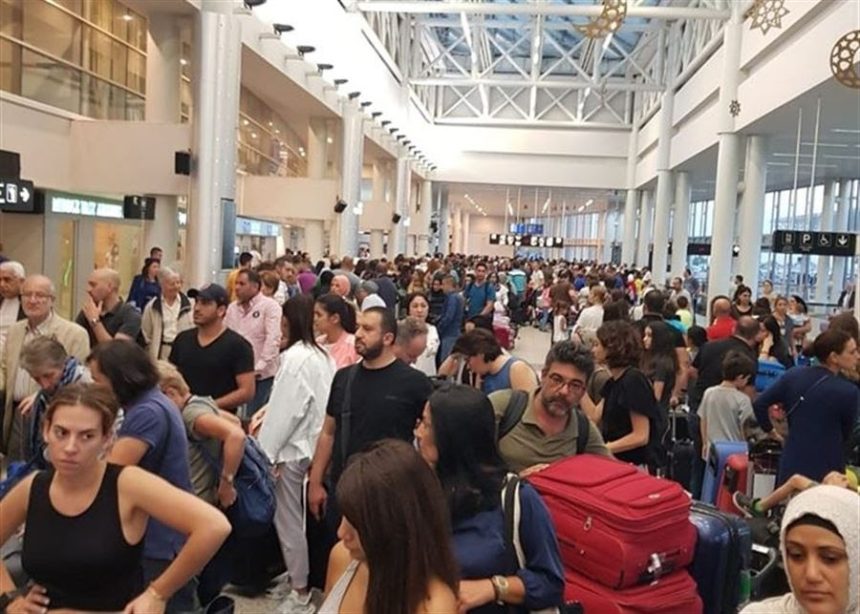The ongoing clashes in South Lebanon have spread beyond the border areas, severely impacting the entire country, with the tourism sector bearing the brunt. As threats of a full-scale war escalate, there are mounting fears that the summer tourism season could be devastated, affecting numerous sectors that depend on this vital pillar of the Lebanese economy. Amid this turmoil, the Hotels Syndicate has launched an advocacy campaign against Airbnb, accusing the platform of unfair competition. The syndicate highlighted issues such as users’ nonpayment of taxes and fees and potential security breaches due to the lack of guest registration with Lebanese General Security.
LIMS acknowledged that the conflicts in the South pose a significant problem for tourism but argues that other challenges should not be overlooked. Firstly, the duopoly imposed by Middle East Airlines on each destination makes air travel to Lebanon more expensive than to neighboring countries, reducing Lebanon’s competitiveness in the regional tourism market. Secondly, Lebanon’s inadequate infrastructure—marked by frequent electricity and water outages, poor road conditions, and food safety issues—exacerbates the problem. Hotels in Lebanon spend 30-35% of their revenue on electricity and water, compared to the global average of 10%, leading to higher service prices and lower occupancy rates. To address these challenges, LIMS recommends that Lebanon focus on reducing operational costs by adopting energy decentralization and alternative energy sources, which could enhance the sector’s competitiveness.
Regarding Airbnb, LIMS emphasized that Lebanon is in the throes of a severe economic crisis, with many citizens struggling to find sources of income. A recent World Bank study indicates that the poorest families in Lebanon are those without dollar income. Platforms like Airbnb provide Lebanese people with an opportunity to earn dollar income, which, even if modest, helps alleviate some of the crisis’s impact and provides a lifeline during these difficult times. Additionally, Airbnb can boost tourism in Lebanon by lowering accommodation costs and attracting budget-conscious tourists. This approach opens new opportunities and offers more options for visitors who prefer economical travel, different from those who choose hotels in high-end areas. Lebanon should be able to diversify its offerings to tap into this new tourist profile, thus expanding its tourism market.
In conclusion, while the immediate impact of the southern clashes on tourism is dire, Lebanon’s broader challenges require comprehensive solutions. By addressing infrastructure deficiencies and embracing innovative income opportunities like Airbnb, Lebanon can build a more resilient and competitive tourism sector.
- Restaurant Crowds And Investment Boom: A Tourism “Bubble”? June 4, 2024: Lebanon Debate, Article AR
- Security Tension in Lebanon Threatens Tourism Season, June 5, 2024: Al Hurra, Video Interview AR
- Competition Between Hotels and Airbnb in Lebanon: Balancing “Tradition and Innovation”, June 8, 2024: Annahar, Video Interview AR
- Lebanon Loses Tourism: Decline in Arrivals with Season Limited to Expatriates, June 11, 2024: Al Hurra, Article AR
- Impacts of the Syrian Refugee Crisis on the Lebanese Economy, June 21, 2024: VDL, Video Interview AR
- Between the Hustle of Life and the Atmosphere of War… Do Social Media Reflect Lebanon’s Economic Situation? June 25, 2024: Akhbar Al Aan, Article AR
- The Balance of Payments in Lebanon Records a Surplus.. With Tourism and Expatriate Remittances Being The Key Factors, June 26, 2024: CNBC, Video Interview AR
الحرب

